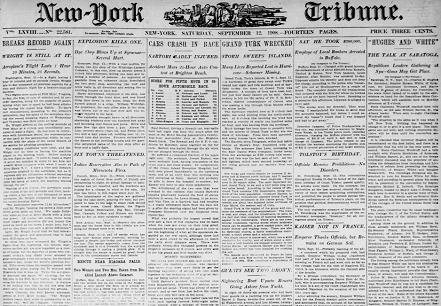My Swiss-born grandmother came to the US in the 1920s when she was a kid. Some of her relatives were already in the US; not all of them stayed for their entire lives. She went back to Europe at least once, possibly twice in the late 1920s/early 1930s to visit relatives. As far as I know, she did not leave the US again until the 1970s when she discovered, after applying for a US passport, that she was not a citizen. She had been voting since the 1930s. She was able to get naturalized without too many problems.
A few weeks ago, I was looking at the Ellis Island ship manifests, which I recently learned have been made available online, and I found what seems to be the only manifest for my grandmother on file. I say “seems to be” because it says she arrived in 1921 at 11, but I remembered hearing that she came in 1922 at the age of 12. I probably remembered wrong. The ship is the Olympic, which is the ship she said she arrived on; she’s listed in first class, and she used to say that if she hadn’t been in first class her eye infection might have caused problems with the immigration agents; and Charles Schwab was on the same ship – I found his manifest – and she used to tell a story about meeting him on deck. Also, the passengers accompanying her happen to have her mother’s and one of her sisters’ names, they were coming from Switzerland (via Southampton), they listed the name of one of her brothers as their destination, and the address for that brother is in the city he lived in. So it must be her. Her later Atlantic crossings must have been either through other ports or after the Ellis Island/Port of New York procedures changed; at least, I couldn’t find them in the database. Her mother is listed once before, in 1914, and that listing has information that matches some things I know about my great-grandmother.
The funny thing is that the listing also indicates that my grandmother, her mother, and her sister intended to return to their home country. “Length of time alien intends to reside in the United States” for all three is listed as “6 mths.”* And there’s a stamp on each of the lines containing their information that appears to read “NON IMMIGRANT ALIEN.”
It’s possible that this was true to their intentions. When I told my dad about this he was surprised to learn that the sister listed, who was in her late 20s at the time, ever came to the US. Decades later my great-grandmother also returned to Switzerland, where a few relatives, probably including that sister, were still living. And of course I already know that my grandmother herself crossed the Atlantic more than once.
So maybe she and some of her relatives just overstayed their [historically appropriate equivalent of a visa] and no one noticed until the 1970s.** It’s also possible that her family really wanted to immigrate – I remember hearing that they put a substantial amount of their resources into being able to cross in first class – and thought this was the best, if not the most legal, way to do it. What I do know is that by the mid-1920s she was living in Wisconsin and learning English from nuns at a boarding school who, though they knew German, would not speak it with their students.
_____
*Technically, it reads “6 mths” for her mother and “do” – which I take to mean “ditto” – for my grandmother and her sister.
**I should look up that brother’s records some day, but haven’t yet. I believe he was the first of the family to immigrate and it might not have been intentional. At the same time, he must have arrived when immigration laws were less restrictive. There’s a story that he gambled himself out of a position with a traveling symphony while in the US. Probably shouldn’t have bet his violin.
